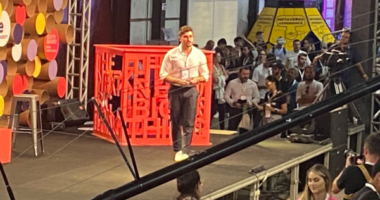Startups in India are looking to expand their workforce with significant hiring intentions across different sectors. The majority of early-stage startups are seeking to hire new talent, with the growth and expansion stages expected to have a multiplier impact on job creation. While 80% of early-stage startups with a current workforce of fewer than 20 employees plan to expand their workforce, sectors such as Aerospace & Defense, Energy, and Healthcare startups are expected to increase their hiring activities by over 30%. In terms of campus placements, startups are focusing on private MBA and engineering colleges, as well as state universities, which offer quality talent at affordable salary packages. Additionally, a considerable proportion of hiring activity across startups is expected to occur at the junior level, with Delhi/NCR, Bengaluru, Mumbai, and Hyderabad being prominent cities in this category. The study shows that while startups are planning to expand their workforce, they face challenges such as a deficit in requisite skills, mismatches in salary expectations, and a reluctance among potential candidates to join a startup due to concerns over risk perception.
The Director General of the Bureau of Indian Standards (BIS), Pramod Kumar Tiwari, announced on Tuesday that BIS has been working towards harmonizing Indian standards with international standards, such as those set by the International Organisation for Standardisation (ISO) and the International Electrotechnical Commission (IEC). This has made it easier for Indian manufacturers to export their goods to international markets, with India leading in many areas, according to Tiwari.

The harmonization of standards is critical for many areas of trade, such as in the case of containers used to transport goods across the world, Tiwari explained. Although a significant number of containers are used by Indian entities, containers are not currently manufactured in India. BIS has formulated standards in this area and has granted licenses, and the hope is to soon have containers manufactured in India that meet international standards.
Tiwari also discussed the impact of harmonized standards on other industries, such as the success story of the Indian toy industry. From January 1, 2021, BIS certification became compulsory for toys, and it has had a positive impact on the industry. BIS certification is also now mandatory for mobile phones, helmets, and other products, which are critical for consumer safety.
India is actively participating in international activities related to standards development, with a focus on creating standards for a safer world, according to Tiwari.
In other news, the Federation of Indian Chambers of Commerce and Industry (FICCI) and Randstad India have launched an exclusive survey on startup hiring trends. Over 300 startups participated in the survey, and according to the survey results, early-stage startups will continue to hire despite the current trend of layoffs among larger corporations.
A recent survey conducted by the Federation of Indian Chambers of Commerce and Industry (FICCI) and Randstad India revealed that despite the current trend of layoffs among larger corporations, 80% of early-stage startups are planning to expand their workforce in 2023. These startups have secured Series A and Series B funding, are well-capitalized, and are primarily driven to hire new talent due to new project orders, additional funding raised from investors, and expansion strategies.
The survey also revealed that 31.92% of startups expect an increase in hiring by over 30%, while 28.08% of companies plan to expand their teams in the 11-20% range. The Agri/Agritech, AI/ML/Deeptech, Automotive, and E-commerce/delivery services sectors are expected to increase hiring in the 11-20% range, while Aerospace & Defense, Energy, and Healthcare startups are expected to increase their hiring activities by over 30%. The sectors depicting the highest intent to hire include healthcare (13%), IT/ITes (10%), agri/agritech (8%), AI/ML/DeepTech (7%), Fintech (7%) and Manufacturing (7%).
The hiring will primarily occur at the junior and mid-levels, with 37.97% of startups indicating that they intend to recruit more junior-level employees, while 27.27% of respondents are planning to focus on mid-level hiring. The Agri/agritech and automotive sectors will focus more on senior-level C-suite hiring.
However, the study states that high attrition rates in the industry are due to factors such as better pay packages offered by larger corporations and concerns over job security in a startup. The lack of clarity around career progression and credibility are also contributing factors to attrition in startups.
Interestingly, 57.28% of startups surveyed believe that Employee Stock Option Pool (ESOPs) have the potential to serve as an effective instrument for retaining employees. Furthermore, 41.49% of surveyed startups have already implemented ESOPs as a retention strategy.
The primary challenges faced by startups in hiring include a deficit in requisite skills, mismatches in salary expectations, and reluctance among potential candidates to join a startup due to concerns over risk perception.
According to the Chairman of FICCI Start-up Committee, Rohit Bansal, startups play a significant role in creating job opportunities in India, with initial job opportunities arising as founders onboard early teams to help establish their businesses. As operations expand, startups create a multiplier effect on job creation, resulting in a virtuous cycle of growth where successive cohorts add more jobs and enterprises. With their pan-India footprint, startups create jobs and economic opportunities beyond just the top cities and are key partners in India’s growth story.
Viswanath PS, MD & CEO of Randstad India, presenting insights from the startup hiring trends survey, highlighted that startups are rapidly emerging as significant players in India’s employment landscape, and with the emergence of several new-age innovative organizations across sectors, the Indian startup ecosystem will be a significant contributor to India’s economic growth over the next few years.
The Randstad-FICCI Start-Up Hiring Trends Survey revealed that the majority of early-stage startups exhibit strong hiring intentions, indicating the strength of India’s diverse talent pool. While 57.76% of startups are looking for permanent recruits, only 42.24% are looking to hire temporary and gig workers.
Geography plays a critical role in startup recruitment, with Hyderabad and Pune emerging as the frontrunners in senior-level hiring. Middle-level hiring is expected to be prominent across cities such as Kolkata, Bengaluru, Mumbai, Chennai, Pune, and Delhi/NCR, while a considerable proportion of hiring activity across startups is expected to occur at the junior level, with Delhi/NCR, Bengaluru, Mumbai, and Hyderabad being the prominent cities in this category.
In terms of qualifications in demand, startups are seeking candidates with expertise in artificial intelligence (AI), machine learning (ML), deep tech, fintech, and agri/agritech sectors. The survey revealed that 50.70% of startups consider expertise in AI/ML/deep tech to be essential for hiring, while 37.68% of startups prioritize fintech qualifications. Additionally, 28.77% of startups consider agri/agritech expertise to be essential for recruitment.
Overall, startups are creating unique employment opportunities and career paths, contributing to socio-economic development and transformation in India’s economy. As the startup ecosystem continues to grow and evolve, it is expected to fuel the next phase of India Inc.’s emergence as the world’s most attractive employment hub.
The Randstad-FICCI Start-Up Hiring Trends Survey shows that 45.21% of startups are looking to hire semi-skilled employees, while 41.49% are seeking highly skilled professionals. Startups are also focusing on private MBA and engineering colleges as well as state universities, with 67.55% of them opting for these institutes for quality talent at affordable salary packages. Only a small proportion (9.16%) of startups are opting for premier institutions such as IITs and IIMs for their campus placements.
Don’t miss interesting posts on Famousbio









